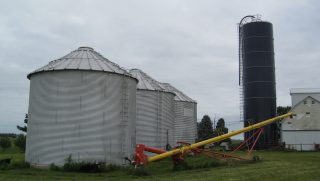Most of us have already heard by now that on Monday, April 8, North America will witness a total solar eclipse, which will begin over the South Pacific Ocean and make its way across Mexico, the United States, and Canada. Weather permitting, the first location in continental North America to experience totality will be Mexico’s Pacific coast, with the event starting around 11:07 a.m. PDT.
The eclipse’s path will then move through the United States, entering through Texas and traveling across Oklahoma, Arkansas, Missouri, Illinois, Kentucky, Indiana, Ohio, Pennsylvania, New York, Vermont, New Hampshire, and Maine. Additionally, small parts of Tennessee and Michigan will experience the total solar eclipse.
The eclipse will continue its journey into Canada, passing through Southern Ontario, Quebec, New Brunswick, Prince Edward Island, and Cape Breton, before concluding on the Atlantic coast of Newfoundland at 5:16 p.m. NDT.
This celestial event offers a rare opportunity for people across North America to witness the awe-inspiring beauty of a total solar eclipse, provided the weather cooperates for optimal viewing.
NASA has provided an interactive map to help viewers examine the timing and location of the solar eclipse, learn more about the chances of visibility based on NOAA weather, and more.
How farmers can prepare for the solar eclipse
Ohio State University notes that a half-million people could flow in the path of the solar eclipse in Ohio on April 8.
“The potential increase of visitors to Ohio’s rural areas raises unique safety and legal concerns for farmers and farmland owners,” writes the university.
To prepare for potential impacts of the eclipse on the agricultural community, OSU’s Agricultural & Resource Law Program and OSU’s Ag Safety Team offer these five steps farmers and farmland owners can take:
1. Secure the farm property.
Farm and farmstead security has been the topic of many discussions as it relates to the upcoming solar eclipse. Depending on traffic congestion and proximity of fields, barn lots, and homesteads, visiting motorists may just pull off the road wherever they are at the time the eclipse begins. This could lead to wandering around of uninvited guests both young and old. Farmers and farmland owners can take several steps to secure the property and prevent access.
- First, walk around the farm with someone who has a fresh set of eyes, such as a relative, a neighbor, or a non-farm friend. Have them help identify potential dangers that would appear open, interesting, or attractive to an uninvited guest on the farm. This can be helpful, as we become desensitized to dangers that we see daily and we tend to overlook them.
- Take inventory of all equipment and equipment locations prior to April 8th. Remove keys and lock cabs for all equipment in a non-secured building, if possible, or if not possible, remove battery cables off batteries or install a battery disconnect switch.
- Special care should be taken with anhydrous ammonia tanks. Do not leave nurse tanks sitting in fields, and remove hoses when they are not in use.
- Lock all shops and storage buildings, especially areas where pesticides are stored.
- Secure all ladders to grain bins, silos, hay lofts, etc.
- Restrict entry to drives, pits, and lagoons with gates and barricades.
- Livestock operations should not have high biosecurity concerns since eclipse viewers are likely to be “low risk visitors” who do not interact with other livestock facilities. But to avoid biosecurity concerns and reduce the risk of introductions of new diseases, keep livestock inside and keep barns and gates locked.
- Post “No Trespassing” signs at all points of entry to barn yards and fields.
- Finally, an added measure to help you in case of an incident or claim is to document what you’ve done by taking notes, pictures and/or videos of all areas you’ve secured.
2. Understand trespass laws.
Trespassers can create problems for farmland owners, and It’s common for landowners to want to protect their property from trespassers. Likewise, landowners don’t want to live in fear of being liable for harm a trespasser suffers on the property.
It’s important for landowners to understand the rights and responsibilities our trespass laws establish.
- Be proactive and post warnings or notices of potential dangers and perils on the property.
- Install barriers around dangerous conditions where possible, or complete elimination of the dangers when possible is ideal.
- Deter trespassers by posting “No Trespassing” signs and “Warning” signs on property boundaries.
- Do not set any type of trap that could cause intentional harm to a trespasser.
- Do not pursue or attack a trespasser or hold a trespasser against their will unless the person has committed a felony, such as murder.
- Do not use excessive or deadly force against a trespasser who is not endangering a person.
- If the situation warrants, call law enforcement rather than escalating a trespassing situation. Be aware that law enforcement response times may be slower than normal due to the increased population and traffic in the area.
3. Know the responsibilities of invited guests.
If a farmland owner is considering inviting guests onto the farm to view the eclipse, participate in eclipse events, or camp or stay overnight, three major areas raise legal and safety concerns: liability, insurance, licensing, and permits.
Landowners are encouraged to deal with dangerous conditions, look into their state’s immunity laws, and check with their insurance agents. If you’re serving food, you’ll need to check with local zoning and the health department to verify if permits are required and how to acquire proper licensing. Then, make sure invited vendors are properly licensed.
4. Plan ahead for farming activities.
Many agencies are advising people, regardless of whether they live in rural or urban areas, to prepare as if a winter storm is approaching due to the anticipated disruptions caused by the upcoming solar eclipse. Cell phone service may be impacted, travel is expected to be affected, and services like deliveries and repair technicians may experience delays. The extent of the event’s impact on specific areas and farms will depend on weather forecasts and the travel patterns of visitors.
This “eclipse storm” is expected to coincide with a critical period for spring farming activities. Overnight travel by spectators to prime viewing locations is anticipated to occur over the weekend of April 6-7. Visitors staying for the weekend or making day trips to these areas are likely to depart immediately after the event concludes on April 8. If weather and field conditions permit, farming activities may be underway during these times, potentially causing delays. Farmers may also have to contend with increased traffic and disruptions on rural roads due to the influx of visitors.
5. Be prepared to react to an incident.
We all know that the best preparation can reduce risk, but there’s still the possibility of an incident occurring. If there is an incident during the solar eclipse period, a farmer must also be prepared to react to the incident. Doing so can minimize the risk of harm or liability.
Farms might consider making a list of actions to take such as calling local law enforcement or emergency services if necessary, having a first aid kit on hand for minor injurities, and making sure you call the insurance agency in the event of property damage or liability.

Some farms are cashing in on eclipse viewings
Several farms and agritourism businesses are opening up their land for eclipse experiences on farmland.
Becker Farms in Gasport, New York, offers fruit and vegetables to the public through u-pick at the farm. During the eclipse, the farm will be opening up for a day and weekend event full of live music, a petting zoo, a presentation, and more. The all-access pass can be purchased for $100, but general admission that includes solar glasses and a solar eclipse presentation from Barker Library can be had for just $10.
Stuckey Farms, an orchard and cider mill in Sheridan, Ind., is offering a total Eclipse of the Farm experience with an $18 early bird price that includes glasses and activities from and access to food vendors.
Sherwood Farm in Quitman, Arkansas, will have a solar eclipse viewing on their 120-acre farm that includes a fish pond, ATV trails, horseback rides, food, and more.


